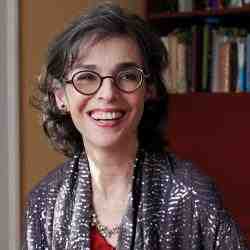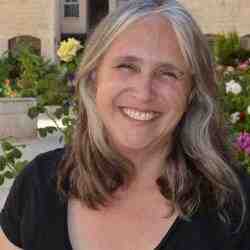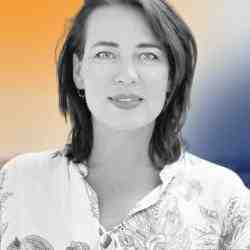Introduction
Burak and Another School is Possible Association (ASIP) are building a civic participation movement of parents, educators, students, activists and entrepreneurs who are for the first time, building their own solutions to the seemingly intractable problems of the Turkish education system. Through their child-centred, ecologically friendly, democratic and non-profit cooperative school model that is spreading rapidly, they are demonstrating that another school is indeed possible, while at the same time shifting the mind-sets of parents and teachers from across Turkey to transform its one-size fits all, out-dated and disempowering education system from within.
The New Idea
Burak founded and has nurtured the Another School is Possible (ASIP) movement, which is bringing together a diverse and ever-growing community of parents, educators, students, activists and entrepreneurs who are reimagining what learning and education in Turkey looks like and creating their own genuine alternatives to the existing system. Through years of research, community building and creative partnerships, ASIP have developed a unique education approach and a self-sustaining, non-profit school model to realize its implementation.
The ASIP school model, which is used as the centers of excellence and ‘flagships’ for this vision of education transformation is based on a fully democratic, non-profit cooperative, ecologically friendly and child-centred approach. This has been open-sourced to allow groups of innovators to take it and open chapters in different areas of Turkey, balancing core ASIP principles with their own unique characteristics and local needs. While this school network is growing organically, the ultimate aim and current organizational focus is on sowing the seeds of this vision into the bigger state system itself.
What started as one school on the South Coast has now become a network of cooperatives in towns and cities around Turkey, a collaborative government school teacher community a series of national events, publications and seminars shifting mindsets of parents and ultimately a grassroots movement of all stakeholders who are struggling to reshape the education system.
The Problem
The Turkish education system is characterized by rigid structures and deep-rooted, systemic problems which disempower teachers and young people and in turn reinforce social divisions and inequalities. An old-fashioned, multiple-choice and ultra competitive exam focus permeates into the whole system right from the very first grade of primary school. This pits students against each other, rewards rote memorisation and completely stifles any cooperation, compassion and creativity. PISA results show Turkey to be among the OECD’s lowest ranked countries for ‘real life problem solving skills’, with students unable to apply learning strategies and reasoning skills to challenges in their own lives.
The system is currently stuck between underfunded and overcrowded state schools and highly commercialized and growing numbers of private schools. These however only serve a tiny minority of privileged elites and children from less well-off families are predominantly concentrated in lower-quality schools, perpetuating existing socio-economic equalities. Parents comparatively spend more than any other country in the OECD on their children’s’ education but remain deeply unhappy, their expectations distort the educational experiences and often force young people into making career choices that don’t in any way reflect their passions or skills. Regardless of being public or private, all Turkish schools are highly hierarchical in their organisational structures and the voices and choices of neither children nor teachers are valued or taken into account. Teacher turnover is also a chronic issue, with the centralized system dictating that teachers are assigned to schools by the Ministry of Education and constantly moved around, meaning innovations or new ways of thinking rarely get institutionalized. Existing teacher training approaches still follow the same outdated and impersonal style of yesteryear and do very little to empower teachers as agents of change.
The culmination of the interplay of these complex problems leads to a catch 22 situation where almost all of the key stakeholders (teachers, parents, students, administrators, universities, employers) end up profoundly dissatisfied with the status quo. All key stakeholders are passive observers, who have been schooled in the same old system themselves and end up perpetuating its shortcomings rather than seeking to transform it. This failure of the educational system is the subject of constant and impassioned debate in all corners of society and ultimately has far reaching effects into social cohesion, polarization, environmental destruction and unemployment with Turkey currently experiencing deep, systemic problems in all of these areas.
The Strategy
Having built a large, Turkey-wide and multi-stakeholder team of parents, educators, students, activists and entrepreneurs, Burak’s first task was to create a tangible and impactful alternative model which would prove that there was a viable alternative to the status quo.
The school model has developed a unique philosophy, which emerged conceptually as a result of many years of systematic research of hundreds of education models and pedagogies and is based on 4 core principles. 1) Authentic Finance: It is a cooperative non-profit organization, made up of demographics from all walks of life (with an absolute minimum of 25% of children on full scholarships). 2) Child-centered: The education model is fully child-centred and rooted in compassion and peacemaking and children, despite their young age (4-8 years old) are in charge of all initiatives in the schools (including conflict resolution teams and carbon footprint reduction ‘ green teams’ ) 3) Democratic: all stakeholders in ASIP schools are seen as equals and all key decisions are taken in the school parliament where the kids constitute a majority 4) Ecologically friendly: All schools are in harmony with nature, including one school being run entirely on solar energy.
Having proven that this model can work, Burak is now devoting his and his organization’s energy into its expansion and replication. Since the first school was launched in 2012, ASIP have been faced with overwhelming demand from all 4 corners of the country for their model, their website being visited by a quarter of a million people in the last year. This has led to them open-sourcing the model, with this ‘Open your own ASIP school’ toolkit the most visited part of the website. Many local chapters are now springing up and by the end of this year, there will be 6 schools and 10 further cooperative groups spread across Turkey with many more on the way.
Rooted in Burak’s conviction that any new model or system for education is only as good as its teachers, they are also building a community of government school teachers with their “Other Teachers Are Possible” program. They have received over 2000 applications to be part of this network, their pilot of 80 teachers focuses on building a permanent community of collaborating peers, learning from each other and bringing their own ideas of education transformation. Their modules include non-violent communication and compassion, positive discipline, and a variety of approaches which force teachers to step back and put the child in charge. Initiatives that have been developed by the community have included teachers bringing ‘children’s parliaments’ to their own classrooms and it has been so well received that
ASIP are currently completing the construction of a permanent teacher' ‘eco-village’, which will give them the capacity to increase this community to hundreds more teachers per year. Burak and ASIP are also playing a key steering role in a Turkey-wide initiative bringing together all teacher development organizations and education faculties to develop an ecosystem for empowered teachers, encouraging them to be agents of change.
ASIP have also started to collaborate with local government municipalities to reach parents and offering ongoing ‘group learning sessions’ to parents on the ASIP vision for education. Each time a new cooperative is formed, before a school is opened, key time must be spent in developing relationships with the local community and ensuring the whole local town understands the ASIP vision and need for it.
Further activities aimed at a influencing the public discourse include events, toolkits and publications, they are also producing a series of books aimed at shifting parent’s mindsets which are all co-designed with primary school children and feature children as protagonists, influencing their own worlds.
The Person
Burak is a parent, educator, environmentalist and political scientist. After spending over 30 years in the Turkish education system, first as a pupil, then studying social economics and working in academia, has both a macro and micro view of the pitfalls in the system. As a lecturer, Burak has also been exposed first hand to the negative impact on the young people who are products of the education system, constantly researching amongst the students who pass through his university on how many felt ready for real life and how many were following their passions. The dishearteningly and increasingly low numbers of students answering yes to these brought the incredible inefficiency of the system into sharp focus for him and he became determined to develop an education model that allows children to positively shape the world around them positively.
When his politician father was imprisoned for his views after the 1980 coup d’état, Burak developed a strong sense of political activism and a fierce independence. This spirit continued into his university days, where he spent time in the South east of Turkey, immersing himself in the local culture and researching for his thesis on the issues the Kurdish minority were facing and experiencing inequality and injustice first hand. Burak then travelled and settled in Bolivia, working alongside associations and cooperatives of indigenous Cocaleros, where he saw real empowerment and mobilisation of people at the bottom of the pyramid. This further sharpened his world-view, fuelled his passion for a more equal, just and prosperous Turkish society and sparked the first thoughts of a grass roots education movement in his home country. Steeped in a deep knowledge of the system, Burak’s view has always been that education transformation is the fastest route towards the society of which he dreams and that primary education is the highest leverage point at which to intervene right now in Turkey. He is considered a key influencer in the education space in Turkey, giving regular talks and writing opinion pieces and he is also very active globally, keen to see the ASIP model spread beyond Turkey’s borders and forging partnerships with international networks and institutions in Germany, the US and the UK.
Burak’s magnetic ability to rally people around this cause started with the construction of the first ASIP school in Bodrum where he mobilised hundreds of local community members from all walks of life to build the school with their own hands, with almost no budget he persuaded local businesses and municipality to give furniture and all kinds of materials for free. This volunteer base has now grown to include an army of hundreds of translators, designers, businesses, workshop facilitators and local government members who are all supporting with time and in kind resources, having been convinced by the ASIP vision for education and by the urgent need for a radical transformation in the way children in Turkey grow up.




